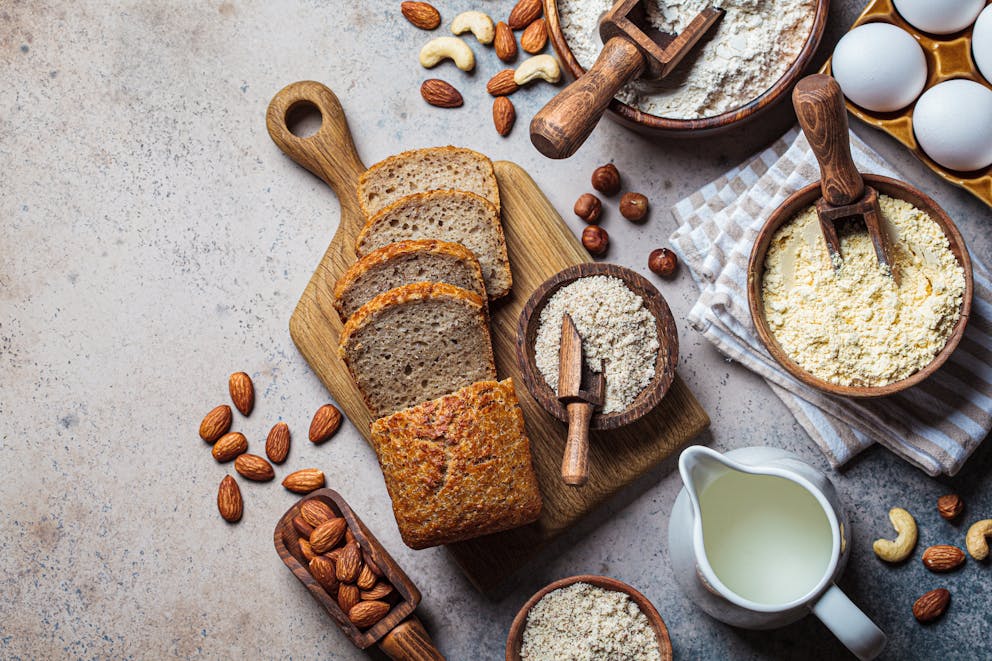Fastest Way To Get Fat That I Know
Gaining weight can be just as challenging as losing it for some people. Whether you're looking to build muscle, recover from an illness, or simply add some healthy pounds, the journey to weight gain requires a strategic approach.
As someone who's helped countless individuals achieve their weight goals, I understand the frustrations and obstacles you might face. But don't worry–with the right knowledge and tactics, you can learn how to gain weight effectively and sustainably.
In this comprehensive guide, we'll explore proven methods to help you pack on pounds in a healthy way. We'll delve into nutritional strategies, workout tips, and lifestyle changes that can make a real difference.
So if you're tired of feeling like the skinny one in the room or just want to fill out your clothes better, you're in the right place. Let's learn how to gain weight and transform your body.
Understanding the Basics of Weight Gain
Before we jump into specific strategies on how to gain weight, it's crucial to understand the fundamental principle behind weight gain: caloric surplus. This means consuming more calories than your body burns each day.
It sounds simple, but there's more to it than just eating everything in sight. Quality matters just as much as quantity when it comes to gaining weight healthily. You want to focus on nutrient-dense foods that will nourish your body while helping you reach your calorie goals.
This approach ensures you're not just gaining fat but building lean muscle mass as well.
Calculating Your Calorie Needs
The first step in your weight gain journey is figuring out how many calories you need to consume. This varies based on factors like your age, gender, height, current weight, and activity level.
A good starting point is to add 300-500 calories to your maintenance calorie level. For example, if you maintain your weight at 2,500 calories per day, aim for 2,800-3,000 calories to start gaining weight.
You can use online calculators or consult with a registered dietitian to get a more accurate estimate tailored to your specific needs and address any underlying health conditions.
Nutritional Strategies for Healthy Weight Gain
Now that we understand the calorie basics let's dive into the nutritional strategies that will help you gain weight effectively. Remember, it's not just about eating more–it's about eating smarter.
Try adding extra calories throughout your day with energy-dense foods and incorporate healthy fats.

Focus on Energy-Dense Foods
Energy-dense foods pack a lot of calories into smaller portions, making it easier to increase your calorie intake without feeling overly full. Some excellent options include:
Nuts and nut butters (almonds, peanuts dried fruit, cashews)
Avocados
Olive oil and other healthy fats
Dried fruits (raisins, dates, figs)
Full-fat dairy products
Incorporating these foods into your meals and snacks can significantly boost your daily calories without requiring you to eat enormous volumes of food.
Prioritize Protein for Muscle Growth
Protein is crucial for building muscle mass, which is a key component of healthy weight gain. Aim for about 1.6 to 2.2 grams of protein per kilogram of body weight daily. High-protein foods include:
Consider adding protein supplements like protein shakes or smoothies to your diet if you struggle to meet your protein intake through whole foods alone.
Don't Neglect Carbohydrates
While protein is essential, carbohydrates are your body's primary energy source and play a crucial role in weight gain. Focus on complex carbs that provide sustained energy:
Sweet potatoes
Brown rice
Quinoa
Oats
These carbs will fuel your workouts and help you recover, supporting muscle growth and overall body weight gain.
Meal Planning and Eating Strategies
Knowing what to eat is only half the battle when it comes to how to gain weight. You also need to structure your eating habits to support your goals.
Increase Meal Frequency
Instead of sticking to the traditional three meals a day, try eating 5-6 smaller meals. This approach can help you consume more calories without feeling overly full at any one time.
It also keeps your metabolism humming and provides a steady stream of nutrients to your muscles.
Don't Skip Breakfast
Breakfast truly is the most important meal of the day, especially when you're trying to gain weight. Start your day with a calorie-dense, nutrient-rich meal to kickstart your metabolism and set the tone for the rest of your day.
Try options like oatmeal with nuts and dried fruit, whole-grain toast with avocado and eggs, or a hearty smoothie bowl topped with granola and nut butter.
Leverage Liquid Calories
Drinking your calories can be an effective way to increase your intake without feeling too full. Smoothies, protein shakes, and homemade weight gainer shakes can be excellent additions to your diet.
Just be sure to use whole food ingredients rather than relying solely on processed supplements.

Exercise: The Key to Healthy Weight Gain
While your eating plan plays a crucial role in how to gain weight, exercise–particularly strength training–is equally important. It ensures that the weight you gain is primarily muscle, not just fat.
Increasing your calorie intake and strength training can lead to healthy weight and muscle growth.
Focus on Strength Training
Resistance exercises stimulate muscle growth, which is essential for healthy weight gain. Aim for at least 3-4 strength training sessions per week, focusing on compound exercises that work multiple muscle groups simultaneously. These include:
Squats
Deadlifts
Bench presses
Pull-ups
Rows
Gradually increase the weight and volume of your workouts to continue challenging your muscles and promoting growth.
Limit Cardio
While cardiovascular exercise is important for overall health, too much can hinder your weight gain efforts by burning excess calories. If you enjoy cardio, opt for shorter, high-intensity sessions rather than long, steady-state workouts.
Rest and Recovery
Don't underestimate the importance of rest in your journey to gain weight. Muscles grow during recovery, not during the workout itself. Ensure you're getting adequate sleep (7-9 hours per night) and taking rest days between intense workouts to help build muscle mass.
Supplements to Support Weight Gain
While whole foods should form the foundation of your diet, supplements can be helpful tools in your quest to gain weight. Here are a few to consider:
Protein Powder
Whey, casein, or plant-based protein powders can help you meet your increased protein needs. They're convenient and can be easily added to shakes, smoothies, or even baked goods.
Creatine
Creatine is one of the most well-researched supplements for muscle gain. It can help increase strength and muscle mass when combined with resistance training.
Weight Gainers
These high-calorie protein shakes can be useful if you struggle to eat enough whole food. However, they should be used in moderation and not as a replacement for real food.
Common Challenges and How to Overcome Them
Learning how to gain weight isn't always smooth sailing. Here are some common challenges you might face and how to overcome them:
Fast Metabolism
If you have a naturally fast metabolism, you might find it hard to gain weight. The key is to consistently eat more calories than you burn. This might mean eating even when you're not hungry or setting reminders to ensure you're eating frequently enough.
Lack of Appetite
Some people struggle with a lack of appetite, making it difficult to eat enough to gain weight. Try eating smaller, more frequent meals and focus on calorie-dense foods. You can also try appetite stimulants like zinc or certain herbs, but consult with a healthcare provider first.
Plateaus
It's normal to hit plateaus in your weight gain journey. When this happens, reassess your calorie intake and consider increasing it slightly. Also, switch up your workout routine to challenge your muscles in new ways.
Healthy Growth Essentials
Achieving healthy weight gain requires a strategic approach focused on nutrient-dense foods that promote muscle growth and overall wellness.
Incorporating high-calorie, wholesome ingredients like nuts, seeds, avocados, and lean proteins can provide the necessary energy and nutrients for healthy growth. Additionally, snacking smartly is essential, and one delicious option is Keto Cheese Crisps.
These low-carb, high-fat snacks offer a tasty way to increase calorie intake without compromising on health. Keto Cheese Crisps are perfect for adding variety and satisfaction to your diet while supporting your weight gain goals.
By combining these nourishing tips with a balanced eating plan, you can achieve sustainable and healthy growth.
Conclusion
Learning how to gain weight healthily is a journey that requires patience, consistency, and a strategic approach.
By focusing on nutrient-dense foods, increasing your calorie intake gradually, and combining a solid nutrition plan with effective strength training, you can achieve your weight gain goals.
Remember, everyone's body is different, so what works for one person might not work for another. Don't be afraid to experiment and adjust your approach as needed. With persistence and the right strategies, you can transform your physique and reach your ideal weight.
Keep pushing forward, stay consistent, and celebrate every pound gained–you're on your way to a stronger, healthier you.
Previous blog
Autophagy: Exercise vs. FastingTags

Popular
08/21/2024
55K views
02/23/2025
46.3K views
11/18/2024
277.5K views
03/18/2024
11/21/2022




